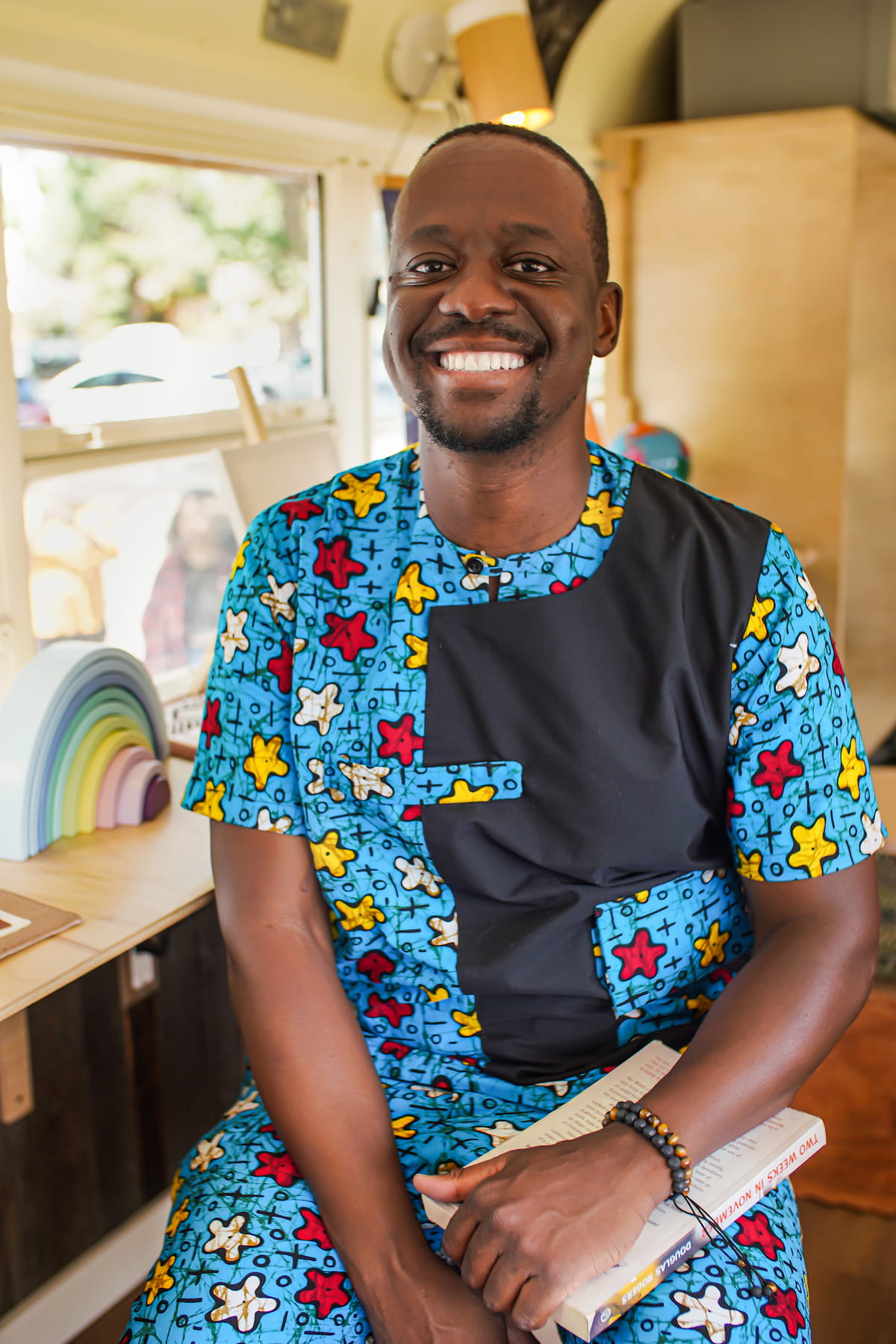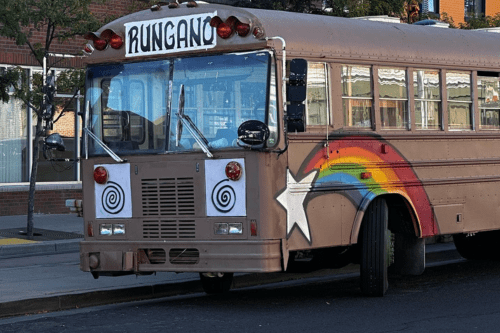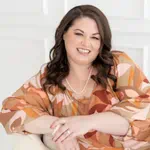Read part 1 of Tatenda’s interview here.
 Tatenda Blessing Muchiriri, American Montessori Society (AMS) Emerging Leaders Fellow, is the founder of Rungano Montessori on Wheels, “a revolutionary and liberatory approach” to providing children and their families access to a Montessori education. Tatenda was born in Zimbabwe and discovered his love of Montessori when he lived in China for seven years. He received his AMS Infant/Toddler and Early Childhood credentials through the Montessori Education Center of the Rockies. Tatenda moved to the Boulder, CO area in 2015 and now serves as a board member for the Colorado Montessori Association and for the MECR Teacher Education Program (TEP) board where he also works as their MECR Alchemist, responsible for the experiences of student teachers working towards their certification. In this digital interview, Tatenda continues sharing his inspirational story.
Tatenda Blessing Muchiriri, American Montessori Society (AMS) Emerging Leaders Fellow, is the founder of Rungano Montessori on Wheels, “a revolutionary and liberatory approach” to providing children and their families access to a Montessori education. Tatenda was born in Zimbabwe and discovered his love of Montessori when he lived in China for seven years. He received his AMS Infant/Toddler and Early Childhood credentials through the Montessori Education Center of the Rockies. Tatenda moved to the Boulder, CO area in 2015 and now serves as a board member for the Colorado Montessori Association and for the MECR Teacher Education Program (TEP) board where he also works as their MECR Alchemist, responsible for the experiences of student teachers working towards their certification. In this digital interview, Tatenda continues sharing his inspirational story.
Where did the inspiration for Montessori on Wheels originate?
Tatenda: In 2019, I was really asking a lot of questions about my identity as a teacher and the ways in which I had really experienced Montessori from Beijing, where I [was] introduced to Montessori Education, and then moving to Colorado in 2015 working in private schools. It almost felt like there were not so many people who looked like me who I was working with, or who were showing up in my classrooms. It was very private, very white middle and upper class, and here I was a man from Zimbabwe teaching in Beijing, teaching in Denver, and really, really wanting to interrogate what that meant to be an African Montessori educator, an immigrant Montessori educator, a black male Montessori educator. So, for me, it really surfaced this idea of Montessori being very exclusive, being offered in particular neighborhoods where people can afford this kind of education.
I started seeking out ways in which I could, at least, work in environments in the Denver context where I could see more black and brown children, black and brown families. I went into public school education [and] was hired to open the first Montessori classroom within an existing public school here in Denver where, again, I was so excited that, finally, I was going to be in a neighborhood which has thirty percent Black people, thirty percent white, thirty percent Hispanic. I was really excited to see some diversity in my Montessori classroom.
With that preparation to start in that program, what I [did] that summer, with the help of Emily Madison, was [brought] exposure to parents first before they [enrolled] in this program at Stedmen Elementary School. We set out to do parent-child education sessions over the weekends. Again, the idea was that parents cannot choose what they are not exposed to, so I wanted to give them that exposure and that knowledge about what Montessori Education is. Also, in Denver there is a choice system, so I really wanted to help them so that when they make those choices to [enroll] their child in a different program, they also know that there is a Montessori program.
But, to my surprise, again, when I had my first class that fall, we had about twelve white kids and only three BIPOC (Black, Indigenous, People of Color) kids which, again, was a big question for me, like, what is really missing here? Why is it that we don’t have black and brown families [choosing] Montessori education?
So, it really got me to think about what had happened that summer. I wanted to understand the experiences of the families that we had during the summer. What we heard, mostly from the parents, was that they had really enjoyed this idea of me coming to them and offering them Montessori education and the opportunity to explore the materials. That was the magic of the summer experience.
So, then, for me it was just like, oh, maybe this is the missing thing in this whole access and really making sure that we are equitable in Montessori. That we also need to do more outreach. We often come up with beautiful schools, beautiful environments for kids, and we expect them to come to a school, to a program, and nothing is done really about coming to them. So, that was really where the idea came from that we could literally put this on wheels.
Can you share about the process of creating Montessori on Wheels?
Tatenda: I was fortunate that [in] the summer of 2021, I was doing a fellowship here in Denver that brings educators from around the city to spend six weeks sharing their ideas and working on their projects with the idea that when we share, when we listen, and be in fellowship with other educators, something good may come out of it. Within those six weeks… I was able to get somebody who had a bus, gift us their bus because they really felt like this was a magic school bus kind of idea.
Thinking about the history of bussing in the United States, that most of our families who we’re targeting to introduce and expose to Montessori education were once upon a time bussed out of their communities. So, now the bus, in itself, was going to really flip that narrative that a school bus doesn’t have to take you away from your homes, from your communities, to a school, but it can bring you that education in your community, within your own spaces, so that you could get to see that your community has all that you need for your education, or for your learning, and also an opportunity for children to see their community as a learning space. So, the bus really became this beautiful symbol of how we can rewrite the history and how we can also heal from the trauma of education that happened to the parents of the kids whom we were really targeting to expose to Montessori education.
So, then, I got the bus, which was very exciting; it really became, sort of, a nostalgic experience for most families as most of them had grown up with the Magic School Bus in front of their television. So, getting to see the Montessori on Wheels Rungano bus was very beautiful to them as it reminded them about a time when learning was fun, and how learning can be fun, and this idea of joy through learning and exploration, which is at the center of Montessori on Wheels’ values.
After that summer, I then took another six months of going back into the communities and co-creating this program with them. Since we had a bus, we had an opportunity to really invite community, parents, kids, to dream with us and think about what this will look like for them. They were able to, through drawings, and visuals, and creating with us, design the bus itself. The parents helped us think about a learning space that really feels like home and also offers this hands-on learning experience.
It took us about more than ten months to really think about that design process with co-creating with the families, and the kids, and the community, and we were able to launch Montessori on Wheels summer of 2022.
On your website the message “Reclaim, Revive, Restore” can be found. Can you elaborate on these ideas and what they mean for Montessori on Wheels?
Tatenda: This is really our mantra…the blueprint of our values. The way we think about the way that we do Montessori on Wheels is we really want to reclaim Montessori education.
This is really coming from my own personal experience of how I got introduced to Montessori education when I was in Beijing during the Olympics. I was so surprised that something that felt so familiar to me, [yet] here I was on the other side of the world and being introduced to Montessori education. There was some remembering for me that I have had this experience back home in Zimbabwe where I grew up with some of these values of how you engage children in an environment with ownership of their learning, where they’re really excited to ask questions, and learn, and engage teachers, [with] adults working in the periphery.
We do have some connection to this kind of learning, knowing that mostly indigenous cultures in BIPOC families should remember some of these things as something that is very natural in ways in which they engage children, be it in practical life skills or the way they respect children or think of them as very active members of the society and, really, as taking ownership of their learning.
That was the idea of reclaiming. How can we also have a story within this story that is typically, in most cases, very Eurocentric, white-centric; how can we also have our BIPOC families and kids see themselves in Montessori education and have a story to connect with, and to tell, and to share, about how they really resonate with Montessori education.
After you reclaim something, the idea is to revive. How can we then really make Montessori education something that also exists within lower income communities or within BIPOC communities? We hope that with each bus stop, with each community engagement, that we’re giving them the tools and the confidence and everything they need to sustain themselves in understanding what Montessori education is and, hopefully, knowing what’s offered around their community, or if in any opportunity they can create that for themselves or we can co-create that so that there is some Montessori offering within that community.
Restore is, once we have this beautiful offering happening in our communities, our long-term impact is to see this being something that is just the natural occurrence of education within their communities where it is really restored. They are happy. They know how to engage their children. They know who their children are as learners and they really appreciate the Montessori way of teaching and engaging communities.
What does the current Montessori on Wheels team look like?
Tatenda: As of the 2023-2024 school year, we are now a team of four full-time staff. Two of our teachers, Amayrani and Devon, have so much experience working within schools. Amayrani has a social work background…[and] Devon has been a public school teacher and has training in literacy and reading intervention programs.
Then we have an operational person, Nikki Conyers, who is trained from six to eighteen…and I have the zero to three and three to six. We really feel like within the four of us we have a complete experience working with children from birth to eighteen and in different capacities and situations that will be very good for communities to meet their needs in whatever capacity.



